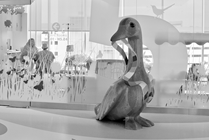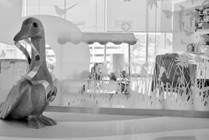Search Results
Viewing: 571-580 of 1459 | All

Condition
Gonorrhea
Gonorrhea is a sexually transmitted infection (STI) caused by the germ Neisseria gonorrhoeae. Anyone that is sexually active is at risk of getting gonorrhea. Those who have had more than one sexual partner are at higher risk of getting infected.

Condition
Measles
This Helping Hand™ explains what measles is, how it spreads, signs and symptoms, treatment options, prevention, and when to seek help.

Condition
Sexually Transmitted Infections (STIs)
This Helping Hand™ explains how STIs can spread as well as how they're treated and what you can do to help prevent them.

Condition
Psychogenic Non-Epileptic Events
This Helping Hand™ reviews what psychogenic non-epileptic events (PNEE) are, as well as signs, diagnosis, and treatment options.
Article
Ear Surgery: Care after Tympanoplasty and/or Mastoidectomy
Your child has had an ear operation, either a tympanoplasty or a mastoidectomy. There are a few things you should do for your child at home.
Article
Labiaplasty
Labiaplasty is a surgery done to remove excess labial tissue. Too much of this tissue can cause pain or discomfort to a female because of rubbing or chafing.

Condition
Bone Marrow: Transplant Chronic Graft-Versus-Host-Disease
This Helping Hand™ explains how after someone has a bone marrow transplant, the donated bone marrow or stem cells can attack healthy tissue in a patient’s body.

Condition
Sore Throat (Viral)
If your child has a sore throat with any of these symptoms, it is likely due to a virus.

Condition
Mononucleosis (Infectious)
Infectious mononucleosis, also known as “mono” or "the kissing disease," is an illness usually caused by the Epstein-Barr virus (EBV). Some cases are caused by a virus called cytomegalovirus (CMV). The virus is contagious and spreads when someone comes in contact with an infected person’s saliva.
Article
Cleft Palate Repair: Instructions After Surgery
Your child's cleft palate has been repaired, and the opening in the roof of the mouth has been closed. There are a few things to know about your child's care at home. Other than these special instructions, your child should be cared for in the same way as any child his or her age.
